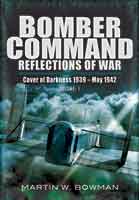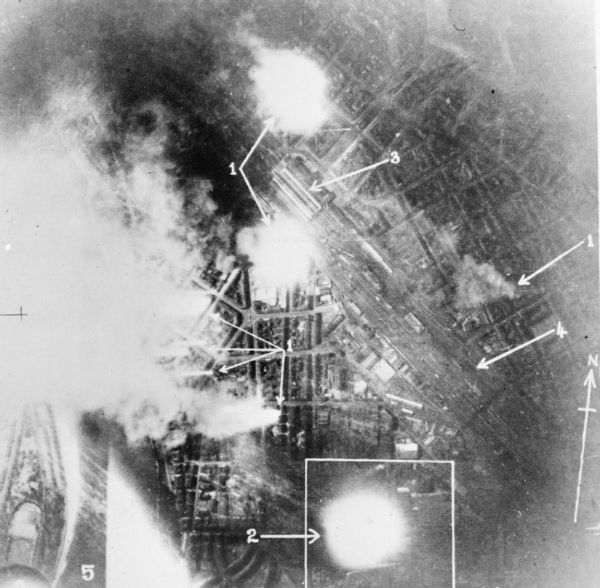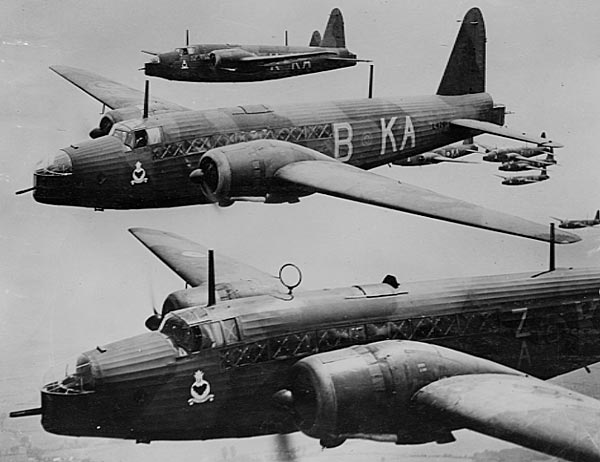| Title: | Bomber Command Reflections of War, Volume 1 |
| Author: | Martin Bowman |
| Editor: | Pen & Sword Books |
| Published: | 2011 |
| ISBN: | 9781848844926 |
| Pages: | 259 |
| Review: |
Over 67 years after the Second World War, the part played by Bomber Command of the Royal Air Force, is still the subject of discussions. This was most appreciated at the establishing of the new Bomber Command Memorial which has been placed in the London Green Park in May 2012. Opponents mainly referred to the large numbers of civilian victims in the German cities and at the strategy of Air Marshall Sir Arthur Harris which caused all that. The most well-known example thereof is the bombardment of Dresden (13-14 February 1945). Supporters pointed mainly at the 55,573 aircrew who lost their lives during the air raids. It is a discussion that will probably be carried along for a long time to come, also within the historiography. The history of Bomber Command however implies a lot more than this moral discussion alone. That makes this first volume of the series “Bomber Command Reflections of War” a very interesting read. The book was written by British Martin Bowman. He is one of the most celebrated historians of aviation. With his own past in the air force he started to study in depth military aviation. By now he has written dozens of books about both the British, the American as well as the German air forces. This one is the first volume of a series of five books in which he collates the experiences of airmen of Bomber Command and places them in the perspective of the various phases of the war. Volume 1 treats the period of the breaking out of the Second World War till May 1942. It is a period with missions that are hardly comparable with the large scale operations of the later years of the war, and in which so many civilian victims were involved. At this moment of the war the British High Command was still in great insecurity about the actual possibilities of the air arm. Yet they dedicated an important role to the bombers. One may refer to the speech of the Prime Minister Sir Winston Churchill in 1940 in which he stated that “the bombers alone provide the means of victory”. Many British young men volunteered for the RAF together with many of their age from all parts of the British Commonwealth . The task they had to carry out however was a dangerous and a difficult one. Only light bombers were available which appeared to not be able to effectively defend themselves to attacking German fighter airplanes. Next to that, navigational aids had not yet been sufficiently developed and if the target was found, it appeared to be difficult to hit. Whilst many aircrew were of the impression that they delivered an important contribution to the war effort, the actual results were not even in proportion with the losses they suffered. Bowman has succeeded in fitting these optimistic stories of the flying crews into their historical context. A good example hereof is his description of the disastrous attack on the German navy at Wilhelmshafen of 18 December 1939. This case provides a good feel of the great dangers these men ran into, while the mission they carried out had relatively little effect. In the year and a half thereafter the bombers could still not comply with results that were expected from this part of the forces. This made Air Chief Marshall Charles Portal decide to appoint Sir Arthur Harris as the new leader of Bomber Command in the spring of 1942 and to introduce a new strategy of “area bombing”. This was a breaking-point in the campaign of Bomber Command and it is therefore no surprise that Bowman has chosen this moment as the end of his first volume. With his extensive research and the many personal accounts Bowman provides his readers with the experiences of the flight crews and the circumstances in which they carried out their tasks. Their stories are not connected at all to the strategy which was maintained during a large part of the war by Bomber Command. Bowman introduces the part the air crew played during the Second World War to the main public. Those that enthusiastically reported for duty in the air force during the early phase of confusion and opportunism and consequently were drafted into the bomber fleet where they carried out a dangerous duty without ever receiving recognition , are being drawn from anonymity (where they ended up in the course of time caused by the vivid discussions) by publications like this one. This book therefore ought not to be considered as a part of this moral debate, but as an homage to the bravery of these young men. That makes this first volume of the series a very interesting addition to the historiography of war in the air. |
| Rating: |
|
Information
- Translated by:
- Fred Bolle
- Article by:
- Pieter Schlebaum
- Published on:
- 19-11-2012
- Last edit on:
- 26-12-2012
- Feedback?
- Send it!






